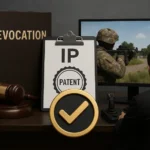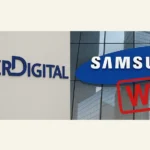USPTO Rejects OpenAI’s Bid to Trademark “GPT”: What This Means for AI Branding and IP Strategy
- Updated on: May 23, 2025
- Read 3 minutes
- Published on May 23, 2025
In a notable decision that’s sending ripples through the AI and IP communities alike, the United States Patent and Trademark Office (USPTO) has denied OpenAI’s application to trademark “GPT”, dealing a setback to the tech giant’s branding efforts around its foundational AI models.
While ChatGPT remains a dominant force in conversational AI and continues to be the most recognizable name in the space, OpenAI’s effort to gain exclusive rights over the acronym “GPT” has officially come to an end for now. This marks the USPTO’s final refusal, following an earlier denial.
Why the USPTO Said No
The USPTO’s reasoning is grounded in a fundamental principle of trademark law: generic or merely descriptive terms cannot be registered as trademarks. In its denial, the office stated:
In simple terms, “GPT” (short for Generative Pre-trained Transformer) is now widely understood across the tech industry as a technical description of a category of AI models, rather than a distinctive brand identifier. The term has become commonplace used by competitors, researchers, and platforms ranging from Amazon to open-source communities.
OpenAI’s Position and Why It Fell Short
From OpenAI’s perspective, trademarking “GPT” made strategic sense. The company popularized the term and arguably brought it into the mainstream with ChatGPT’s explosive success.
But as trademark law emphasizes, popularizing a term doesn’t necessarily make it protectable. In fact, the more generic or descriptive a term becomes, the harder it is to claim exclusive rights to it. This is the paradox at the heart of OpenAI’s case.
Despite being the first to embed “GPT” in a product name that went viral, OpenAI couldn’t overcome the legal reality that “GPT” had become a descriptive abbreviation for a type of technology, not a proprietary product identifier.
Implications for AI Companies
While OpenAI won’t be able to stop others from using “GPT” in product names, this decision doesn’t grant competitors free rein to misuse the ChatGPT brand itself or any other trademarks that are registered.
Still, this opens the door for more companies to adopt “GPT” into their own branding without immediate fear of legal backlash. It also reflects the challenges tech companies face when their terminology becomes industry-standard before legal protections are secured.
Learnings for Innovators and IP Strategists
This case offers several important takeaways for companies operating at the intersection of technology and intellectual property:
1. Choose Distinctive Names from the Start
Generic or descriptive names may help users understand what a product does, but they are hard to protect legally. A distinctive or coined term (e.g., “Kodak,” “Xerox,” or even “Google”) can be more easily trademarked and defended.
2. Don’t Delay Brand Protection
If you’re pioneering a new term or product, file early and define clear boundaries. Waiting until a term gains widespread use can result in it becoming generic.
3. Educate Your Market Strategically
While educating the market about your technology is essential, be cautious not to genericize your own brand terminology in the process. Strive for a balance between public understanding and proprietary control.
4. Descriptive = Useful, But Risky
Descriptive naming may improve discoverability and early adoption, but it limits legal exclusivity and makes brand differentiation harder over time.
Final Thoughts
The USPTO’s final refusal of OpenAI’s GPT trademark is more than just a legal footnote, it’s a strategic case study in how IP, branding, and product development intersect in the AI era. As companies continue to innovate and commercialize machine learning technologies, they must also understand the complex terrain of trademark law to protect their brands effectively.
At Maxinov, we help businesses, especially in high-tech and emerging fields, build robust IP strategies that align with product and branding goals. Naming isn’t just marketing, it’s an IP decision.
For more insights into patents, trademarks, and AI technology strategies, follow Maxinov’s IP Thought Leadership Series.










No comment yet, add your voice below!